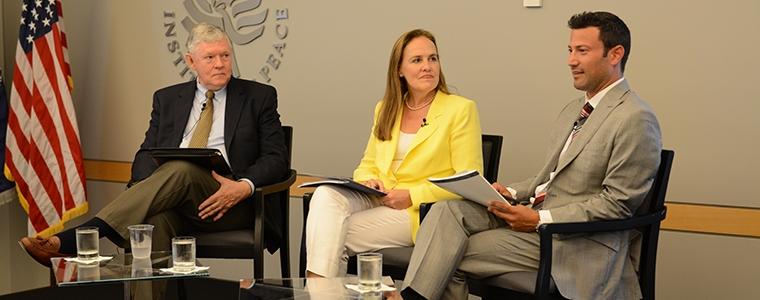Ensuring a Strong U.S. Defense for the Future
Read the Event CoverageThe U.S. Institute of Peace hosted a discussion of the report by the National Defense Panel, “Ensuring a Strong U.S. Defense for the Future,” with the Hon. Michèle Flournoy and LTG (Ret.) Michael Maples.

After more than a decade of active combat, the United States faces an evolving security environment characterized by challenges in Asia, turmoil in the Middle East, and an emboldened Russia that has destabilized Europe. With sequestration budget cuts ahead, the U.S. government also faces new fiscal constraints. Amid these regional and economic dynamics, the rapid global proliferation of technology provides both opportunity for and threats to American security and values. Against this backdrop the Department of Defense released its Quadrennial Defense Review (QDR) in March. The report, which provides policy planning guidance for the next two decades, was controversially received by Congress.
Following the QDR’s release, the congressionally-mandated National Defense Panel (NDP), co-chaired by Dr. Bill Perry and General John P. Abizaid, was tasked to evaluate the 2014 QDR. The expert panel, per its mandate, assessed the QDR’s findings related to force size, structure, and posture against a rapidly evolving security environment.
The U.S. Institute of Peace, which was tasked by Congress to facilitate the review of the QDR in both 2014 and 2010, hosted a detailed discussion of the panel’s report, “Ensuring a Strong U.S. Defense for the Future.” The report presents the panel’s findings and recommendations on the QDR and on reforms to planning and policy for both the Department of Defense and Congress. It also comments on the current funding trends and the impact of a return to sequestration in 2016. The discussion was led by panel members Michèle Flournoy and Lieutenant General (Ret.) Michael Maples, and moderated by Defense One’s Executive Editor Mr. Kevin Baron.




